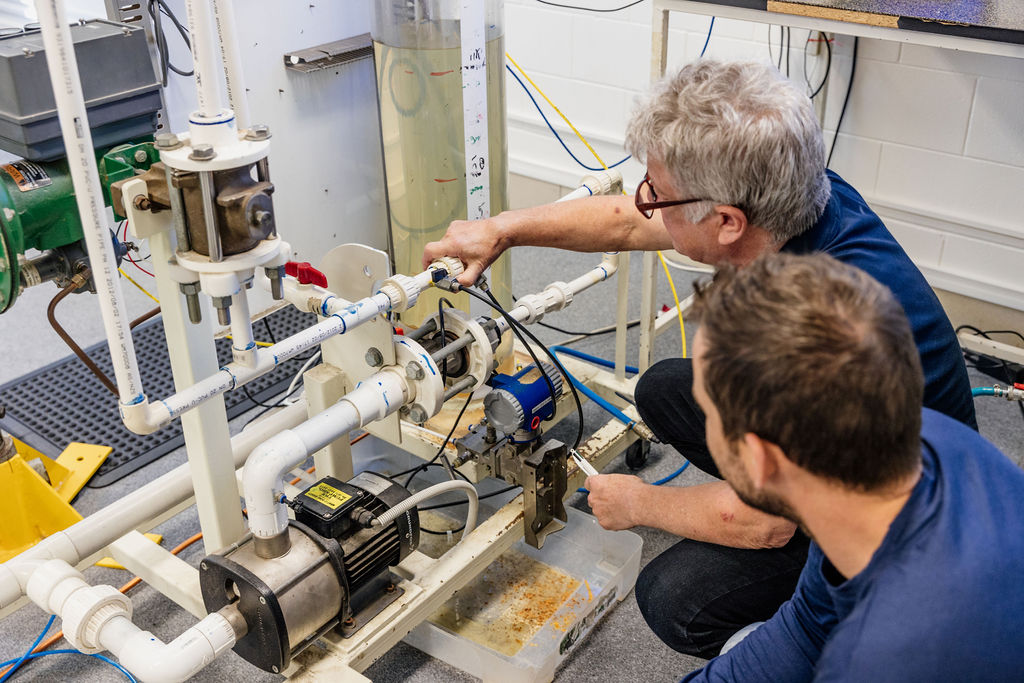Being an electrical instrumentation technician could lead an exciting and rewarding career path that is in demand across a number of industries. If you enjoy working with your hands, have a knack for precision, and love technology, then it may be the perfect job for you.
Let’s take a look at what it means to be an electrical instrumentation technician, and how to get you started on this career path.
What Does an Electrical Instrumentation Technician Do?
Electrical instrumentation technicians play a crucial role in ensuring the smooth operation and efficiency of measurement and control systems in various industries. They are often found working in sectors such as manufacturing, energy, telecommunications, and more.
Electrical Instrumentation Technician’s Responsibilities and Roles
- Setting up instruments: Electrical Instrumentation Technicians are responsible for installing and configuring instruments used for measuring and controlling various parameters, such as temperature, pressure, flow, and level.
- Maintenance and repair: Regular maintenance and calibration of instruments are essential to ensure accurate readings and optimal performance. Electrical Instrumentation Technicians are tasked with diagnosing and repairing any malfunctions or issues that may arise.
- Troubleshooting: When instruments or control systems encounter problems, Electrical Instrumentation Technicians problem-solving skills come into play. They identify the root cause of the issue and implement effective solutions to restore functionality.
- Documentation: Electrical Instrumentation Technicians take note of accurate record-keeping and documentation of maintenance, repairs, and calibration activities are vital for compliance and traceability purposes.
Industries That Commonly Employ Electrical Instrumentation Technicians
Electrical Instrumentation Technicians work in a number of different industries.
Some of the most common industries that employ Electrical Instrumentation Technicians include:
Oil and Gas
The oil and gas industry heavily relies on electrical instrumentation to ensure safe and efficient operations. Electrical Instrumentation Technicians work in this industry by installing, maintaining, and calibrating instruments used in various processes such as drilling, production, refining, and pipeline transportation. They ensure accurate measurement of variables such as pressure, temperature, flow rate, and level, which are essential for controlling and optimising operations.
Manufacturing
Electrical Instrumentation Technicians are essential in the manufacturing sector to ensure the smooth functioning of industrial processes. They are responsible for installing and maintaining instruments that monitor and control variables like temperature, pressure, humidity, and pH. By ensuring precise measurement and control, they contribute to maintaining product quality, optimising production efficiency, and minimising downtime.
Power Generation and Distribution
Electrical Instrumentation Technicians play an important role in power generation plants, including thermal power plants, hydroelectric stations, and renewable energy facilities. They are involved in the installation, calibration, and maintenance of instruments used for monitoring and controlling variables such as voltage, current, frequency, and power factor. Their work ensures the safe and reliable operation of electrical systems, helps optimise power generation processes, and supports effective grid management and distribution.
Pharmaceuticals
In the pharmaceutical industry, precise control and monitoring of processes are vital to ensure the quality and safety of medications. Electrical Instrumentation Technicians are responsible for installing, calibrating, and maintaining instruments used in pharmaceutical manufacturing, including temperature controllers, pressure sensors, flow metres, and analytical instruments. They play an important role in complying with regulatory standards, optimising manufacturing processes, and ensuring accurate dosing and formulation.
Chemical Plants
Chemical plants rely on electrical instrumentation for the safe and efficient production of various chemicals. Electrical Instrumentation Technicians are involved in the installation, calibration, and maintenance of instruments used to monitor and control variables such as temperature, pressure, pH, and chemical concentrations. They ensure accurate measurement and control of these variables, contributing to process safety, product quality, and environmental compliance.
How to Become an Electrical Instrumentation Technician
Becoming an electrical instrumentation technician requires a solid educational foundation and practical experience.
Educational Requirements and Qualifications
To pursue a career as an electrical instrumentation technician, a relevant qualification is essential. The specific educational requirements may vary depending on the industry and employer; however, a common pathway involves completing electrotechnology courses like a Certificate III in Instrumentation and Control or a Diploma of Electrical and Instrumentation. These programs are usually required as they provide both the necessary theoretical knowledge and practical skills required for a role.
Precision, Technical Expertise, and Problem-Solving Skills
Working as an electrical instrumentation technician demands a high level of precision, technical expertise, and problem-solving skills. They need to be meticulous in their work, ensuring accurate measurements and reliable control system performance. Technical knowledge of electrical systems, instruments, data acquisition, and control systems is essential. Additionally, in their field it is critical that they must have the ability to analyse and troubleshoot complex problems efficiently.
Once you have gained the education and skills necessary to become an electrical instrumentation technician, it’s important to be prepared for common questions that you may be asked for a job interview in the electrical field.
Electrical Instrumentation Technician Salary
Electrical Instrumentation Technicians typically enjoy competitive salaries due to the specialised nature of their work. According to recent 2023 industry data, the average annual salary for Electrical Instrumentation Technicians in Australia ranges widely, with variations depending on different factors such as experience levels, education, industry, and location.
EIM Training: Your Gateway to the Instrumentation and Control Industry
At EIM Training, we specialise in providing the education and training necessary for individuals to enter the instrumentation and control industry. Whether you are starting from scratch or looking to upgrade your current qualification, we are here to guide you throughout your journey.
Our electrotechnology course catalogue includes
- Diploma of Electrical and Instrumentation
- Certificate IV in Electrical – Instrumentation
- Certificate III in Instrumentation and Control
If you aren’t sure which electrotechnology courses are the right fit for you, contact us.




